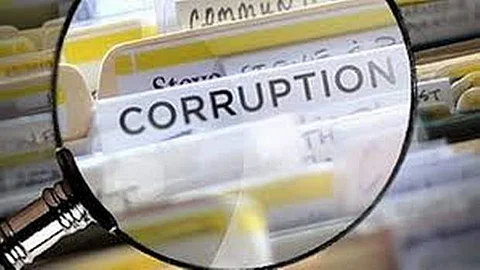

The constant expansion in size and sophistication of the arms trade feeds corruption in the system. The nature of the arms trade has been changing and so is the profile of arms dealers.
India was overwhelmed by corruption in Bofors deal during Rajiv Gandhi’s heyday leading to the government’s haphazard attempts to blacklist companies caught paying bribes. But the defence agents even today are easily allowed past doors of South-North blocks with Blue Label and expensive gifts in tow.

According to top government sources, they have streamlined the access control, restricting the movements of agents in the sensitive areas including technical cells but classified documents found at arms dealer Sanjay Bhandari’s offices in April suggests the shadowy operators have found other ways to invade the system. India remains the world’s largest arms importer, accounting for 14 per cent of the global imports during 2011-15 and it buys weapons worth $8 billion annually.
“Much has changed since
the days of Quattrocchi and Nandas. Now the different sets of agents are involved at all 18 stages of the procurement like for example Bhandari, who was providing advance information about the tender and technical parameters in lieu of hefty sums,” sources added.
The lucrative percentage is fixed from providing information to swinging the deal in favour of a particular foreign company. Insiders told The Sunday Standard that at least 0.5 per cent of tender value is spent on the first stage of tendering process and providing prior information on technical parameters. The insiders claimed foreign companies themselves keep at least 1-2 per cent of deals to ensure that technical parameters are in sync with their product. Further they said agents charge up to 0.5-1 per cent to ensure that the company passes through technical bids.
“The most crucial is the trial stage where agents with influence and deep network command up to 3-4 per cent to clear it,” the insiders claimed.
In the last 11 defence scams that have exploded in India since 1981, not a single arms dealer, defence official or a middleman has been convicted. Arrests have been made in only two cases: VVIP chopper and Scorpene submarine deals. In the former, ex-air chief SP Tyagi and two others were sent to jail recently, and in the latter, Abhishek Verma was jailed for violating the Official Secrets Act.
Verma was imprisoned in Tihar frequently while his associate, Ravi Shankaran—the nephew of former Navy chief Admiral Arun Prakash—lives in London with ease.